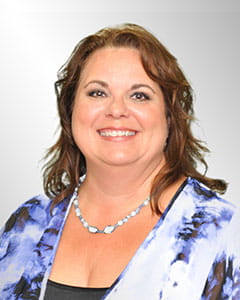Are my child’s speech and language skills developing normally?
Written by Faye Stillman, MS, CCC-SLP/ATP and Carla Hall, MA, CCC-SLP, Speech/Language Pathologists from the Outpatient Rehabilitation Department at Arnold Palmer Hospital.
Parents often tell me that I have one of the most fun jobs in the world; I play with children all day for a living. I whole-heartedly agree, however, there is much more to speech therapy than fun and games. Speech-Language Pathologists are state licensed and nationally certified by ASHA (American Speech-Language Hearing Association) to evaluate and treat a variety of speech and language disorders including:
- oral-motor/feeding difficulties (dysphagia)
- difficulty speaking clearly (articulation, phonological or apraxia of speech disorders)
- difficulty understanding words/sentences or following directions (receptive language and auditory processing skills)
- difficulty naming objects/actions, using sentences (expressive language skills)
- difficulty communicating effectively with family/peers/teachers (pragmatic language skills)
- difficulty with vocal quality (hoarse, raspy voice/decreased breath support/velopharyngeal incompetence)
- difficulty speaking fluently (stuttering)
Often, parents wonder whether their child’s communication skills are developing normally. The following chart can be used as a guideline to assist you with making the determination to seek professional help.
At age Red Flags
12 months Does not understand simple directives with gestures, i.e. “up.”
Does not use gestures, i.e. wave bye-bye or shake head “no.”
15 months Does not respond to “no,” or “bye-bye.”
Has not said first word.
18 months Does not look attentively or follow simple directives, i.e. “put it down.”
Does not appear to understand simple questions, i.e. “where is your nose?”
Does not use 6 – 10 words consistently.
24 months Shows decreased interest in social interaction.
Use more gestures than words to communicate.
Uses less than 50 words to communicate.
Is not beginning to combine 2 words into simple phrases, i.e. “more milk.”"
36 months Speech is difficult for people to understand
(BabyCenter.com - Full article here)
If you notice any of these red flags or that your child is not communicating like other same-age peers, a simple trip to the pediatrician to request a prescription for a speech-language evaluation may help ease your mind.
Speech development is also a concern for many parents. Most people are familiar with articulation of speech problems because every Looney Tunes character has one: “Waskali Wabbit” (Rascally Rabbit). However, it’s important to know that a child’s speech takes nearly five years to develop accurately and at least two years to become somewhat intelligible. Mommies always seem to understand their children best, but when others are often asking you to interpret for them, it may be time to consult your pediatrician. Below is a developmental chart that can be used to know whether your concern is a normal developmental pattern or should be pursued for a professional opinion.
Ages at which 90% of children have acquired these sounds:
Age: Sounds (phonemes):
2 years p, m, h
2 ½ years b, d, n, w
3 years g, k, d
3 ½ years f
4 years ing
5 years ch, l, s, sh, j, z
5 ½ years r, v
6 ½ years consonant blends
7 years th (voiced)
7 ½ years th (voiceless)
*
At the Outpatient Pediatric Rehabilitation Department, we have a multitude of wonderful therapists that can assist you with your needs. If you’re concerned that your child may be having difficulty, please give us a call at one of our locations:
925 S. Orange Ave, Orlando, FL 32806 Phone: 407.237.6387
1555 Howell Branch Road, Suite B1, Winter Park, FL 32789 Phone: 407.645.2081







